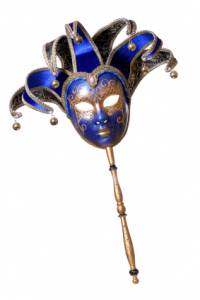Does Mardi Gras Invalidate Lent?
 Although the Universal Life Church is not a Christian or a Catholic organization, we share many of the same basic beliefs that constitute the foundations of these religions. For instance, our interfaith ministers agree with the Christian message that actions as well as thoughts play a significant part in mortality. Those who knowingly commit acts that they believe are wrong sometimes depend on their religion to offer them ablution simply because they’ve asked for forgiveness after the fact. A great example of this is those who celebrate Mardi Gras in ways that are against the teachings of their religion before repenting during Lent to make up for their transgressions. This can be compared to intentionally living a life outside the boundaries of personal belief systems and asking for redemption on the deathbed.
Although the Universal Life Church is not a Christian or a Catholic organization, we share many of the same basic beliefs that constitute the foundations of these religions. For instance, our interfaith ministers agree with the Christian message that actions as well as thoughts play a significant part in mortality. Those who knowingly commit acts that they believe are wrong sometimes depend on their religion to offer them ablution simply because they’ve asked for forgiveness after the fact. A great example of this is those who celebrate Mardi Gras in ways that are against the teachings of their religion before repenting during Lent to make up for their transgressions. This can be compared to intentionally living a life outside the boundaries of personal belief systems and asking for redemption on the deathbed.
The term Mardi Gras is actually French for Fat Tuesday, which is the last night before Lent when believers can enjoy dining on foods rich in calories, fat and taste. Over the years, revelers have incorporated other behavior into Mardi Gras festivities. Most people who celebrate Mardi Gras consider it to be great fun and often go all-out in their activities, similar to how some people spend Saturday nights engaging in behavior that is considered a sin by their church before appearing at services on Sunday morning.
The interfaith ministers who have become ordained through the Universal Life Church do not necessarily believe that the behavior of Mardi Gras revelers constitutes sin. However, we do feel as if spiritual beliefs should be given more than just lip service. Its a complex issue because even though most people probably consider such behavior to be gaming the system, common interpretations of certain parables in Christianity validate the idea that those who reach spiritual enlightenment late in life are entitled to the same rewards as those who have been pious from an early age. The Biblical Parable of the Workers in the Vineyard portrays a situation in which workers were paid the same whether they had worked for one hour in the vineyard or for an entire day. This parable stresses the belief that God loves all people equally and that does not grant favoritism based on the length of time that a person has been a believer.
Conflicts such as these are excellent opportunities for discussion about spiritual matters. Is it really morally right to use the act of asking for forgiveness after engaging in behavior that is against one’s moral code as a sort of spiritual “get out of jail free” card, and is it possible for a person to abuse the notion of forgiveness so many times that they run out of free passes?
Those who become ordained in the Universal Life Church don’t follow a set of beliefs decided on by others. We believe that every individual, including our interfaith ministers, has to find and follow his or her own spiritual path. Part of the process of developing an individual moral code is exploring questions such as this one thoughtfully and in-depth.

